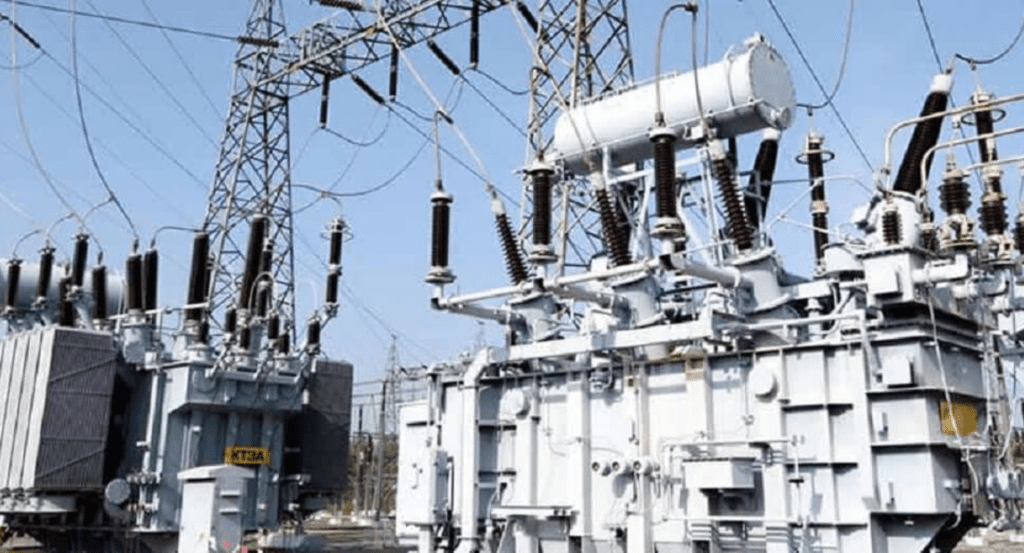Nigeria’s national power grid has suffered yet another collapse, marking the tenth time this year, leading to widespread blackouts across the country. This recurring issue continues to highlight the challenges facing Nigeria’s power sector and the urgent need for systemic reforms. The latest collapse has impacted millions, disrupting businesses, schools, and essential services, adding to frustrations over unreliable electricity in Africa’s most populous nation.
The Transmission Company of Nigeria (TCN) confirmed the incident, attributing the recent failure to the inability of electricity distribution companies (DisCos) to absorb the generated power effectively. In response, the Federal Government expressed concerns over the state of the country’s power infrastructure, pointing to inefficiencies within the distribution sector as a significant factor in these repeated failures.
DisCos’ Role and the Issue of Power Rejection
The government has pointed fingers at DisCos for their alleged inability to efficiently manage the generated electricity, resulting in frequent grid collapses. According to the TCN, several DisCos often reject power supply during periods of peak generation, leading to grid instability. Experts note that such rejections cause an imbalance within the grid, which, without sufficient demand absorption, leads to sudden collapses.
DisCos, however, argue that they face their own set of challenges, citing outdated infrastructure and limited capacity as obstacles to handling the current demand. They further assert that the government must address structural issues across the entire power chain, from generation and transmission to distribution, to ensure a sustainable solution to Nigeria’s energy woes.
Calls for Decentralization and Privatization Reforms
The recurring grid failures have intensified calls for a decentralization of Nigeria’s power sector. Analysts and stakeholders in the energy sector are urging President Bola Tinubu’s administration to consider reforms that would enable a more resilient and diversified power system. Decentralization, according to energy experts, could reduce the national grid’s strain by allowing regions to generate and manage their own power, thereby mitigating the impact of grid-wide collapses.
Nigeria’s power sector underwent partial privatization in 2013, aimed at improving efficiency and attracting private sector investment. However, the system has continued to experience persistent failures, with the recent collapses reigniting debates on the need for a comprehensive overhaul. Energy analyst Dr. Tunde Ajayi emphasized that “the structure of our power sector is outdated and overly centralized, which is why we keep facing these recurring problems.”
The Economic Impact of Frequent Blackouts
Nigeria’s unstable electricity supply has severe implications for its economy. Frequent power outages result in significant losses for businesses, forcing many to rely on costly diesel generators to maintain operations. This dependency on alternative power sources adds a financial burden to households and businesses alike, further weakening economic productivity.
Small and medium-sized enterprises (SMEs), which form the backbone of Nigeria’s economy, are particularly affected by these disruptions. For many SMEs, especially those in manufacturing and retail, power outages lead to reduced operating hours, lost revenue, and decreased competitiveness. This hampers economic growth and discourages foreign investment, as potential investors see the unreliable power supply as a risk factor.
Government’s Response and Future Outlook
In response to the national grid’s latest collapse, the Federal Government has pledged to address the systemic issues plaguing the power sector. Officials have assured citizens that steps are being taken to identify long-term solutions and have hinted at the possibility of implementing policies aimed at decentralizing power generation.
President Tinubu’s administration has also expressed interest in encouraging private sector participation in the power sector. According to government sources, plans are underway to expand investment opportunities and create incentives for local and international investors. These measures are intended to modernize Nigeria’s power infrastructure, making it more reliable and capable of meeting the demands of a growing population.
Hope for Lasting Solutions
Nigeria’s recurrent grid collapses serve as a stark reminder of the need for a sustainable and reliable power infrastructure. The nation’s citizens and businesses are increasingly calling for reforms that will provide a consistent electricity supply. Decentralization, improved infrastructure, and increased private sector engagement are seen as critical steps toward achieving a stable power supply.
While the government has reiterated its commitment to resolving the challenges within the power sector, it remains to be seen how quickly and effectively these reforms will be implemented. The coming months will be crucial for the Tinubu administration as it seeks to restore confidence in Nigeria’s energy sector and deliver on promises of a more reliable power supply.























